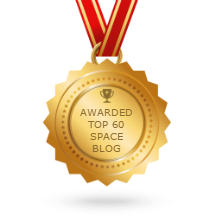Except for Tourism, Aren't We Done in Space?
/After all, the space race is over. We’ve already set foot on the Moon, a foreign body in space. We’ve sent probes all the way to Pluto and beyond. We’ve even put robots on Mars. What else could we possibly do?
In my book you will see how NASA and its partners are making daily discoveries about the Sun and the Solar System, about the origins of the universe, and about the future of the planet we occupy. What else can we do? We can mine the water that lies beneath the poles of the Moon. We can explore lava tubes on Mars that may be warm enough to sustain life, including human life; build floating stations in Venus’s dense atmosphere; break through the ice into the liquid ocean of Jupiter’s moon Europa; see if Saturn’s moon Titan, remarkably similar in size and structure to Earth, is suitable for settlement; mine asteroids for gold; and reap the unknown treasures on Earth that arise from the inventions required for these missions.
Meanwhile, you’ll learn about NASA’s current work: how the agency is integral in upgrading the nation’s air tra c control system, in predicting the weather in space as well as on Earth, and even in creating the elusive Personal Air Vehicle, the flying car.
The short version is this: We have taken baby steps into space. We’re in the position of Spain after Columbus returned from Hispaniola. Spain had a choice. It could have said, “Been there, done that,” and saved itself the trouble of exploring this New World. It could have chosen to forfeit in advance the wealth and power that followed.
NASA’s current work is essential but not sufficient. The next steps entail moving in.




